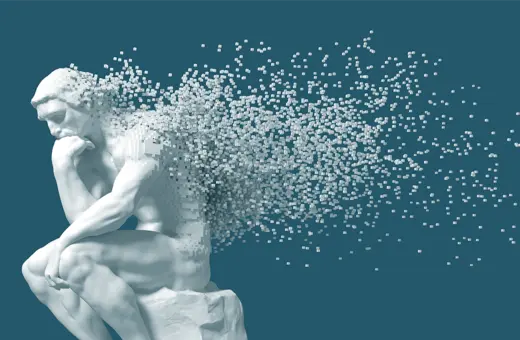The storming of the capitol was only a flashpoint; American democracy was already broken. Since the 1970s, the US government has constantly enacted laws to disenfranchise the American people, culminating with the unlimited funding of US parties by private business. To save American democracy the economics must change: Christian Sarkar and Philip Kotler set out their manifesto.
The sight of a mob climbing up the stairs of the Capitol building earlier in January shattered the illusion of democracy that we have been living under our entire adult lives. Here we are. A second gilded age in America: a healthcare system that does not care about public health, and a government that is not for or by the people. The richest citizens are actively engaged in destroying the common good (it turns out that an anti-tax group funded by billionaires was the biggest backer of the move to overturn the US election results). The wheels are coming off our democracy.
My friends from around the world shake their heads. “What’s wrong with you guys?” they ask.
The answer is that democracy simply cannot coexist with the form of the US economy we see at present. Put simply, corporate and business interests have too much power in the United States. Until this changes, American democracy will remain broken.
Corporate and business interests have too much power in the United States. Until this changes, American democracy will remain broken.
How Did We Get Here?
Trump was only a small part of the problem. As former President Jimmy Carter said, the US is “an oligarchy with unlimited political bribery.” In their ground-breaking book, The Politics Industry, Katherine Gehl and Michael Porter tell us that the American political system is working exactly how it is designed to work. It is simply not designed to benefit ordinary citizens. They explain how the US political system is a private industry dominated by a textbook duopoly—the Democrats and the Republicans—and plagued and perverted by unhealthy competition between the players. It is incapable of delivering solutions to America's key economic and social challenges. In fact, they say, there is virtually no connection between our political leaders solving problems and getting reelected.
But how did the ‘world’s greatest democracy’ get here in the first place? To answer this, we must look to history. In The Creation and Destruction of the Great American Middle Class (1930-2010) Stanley F. Stasch’s explains how the following events handed the power of the people of the United States directly to corporate and business interests:
The 1970s - credit card debt, student loans and for-profit healthcare
The problem with American democracy began in earnest in the 1970s. Now a hot topic which is likely to surface under Biden, this was when a program of government-guaranteed student loans rewarded bankers at the expense of students. In the same period, a new bankruptcy law favored the rich over the middle and lower classes, and the Supreme Court allowed banks to charge extreme interest rates on credit card balances. The ordinary people of America were pushed into debt on unfair terms to the benefit of those who were already rich.
But how did the ‘world’s greatest democracy’ get here in the first place? To answer this, we must look to history.















Join the conversation